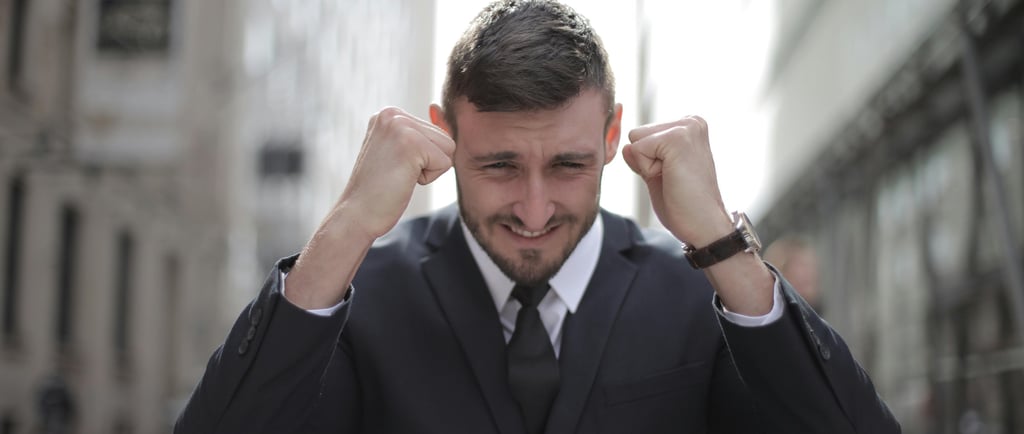From Doubt to Courage: The Real Journey of Building Confidence
Confidence matters
7/17/20255 min read


Confidence is a powerful trait that determines how we perceive ourselves and how others perceive us. It is the quiet strength that compels us to take risks, pursue our dreams, and remain resolute against adversity. Confidence is not something that is born, but we accumulate it through experience, self-knowledge, and openness to challenges. Most people believe that confidence is loud or aggressive, but true confidence is softer and more steady. It is the inner conviction that you can do it, even when you begin to doubt your capability. As Eleanor Roosevelt once expressed, "No one can make you feel inferior without your consent." This is what confidence is all about—it is not about seeking approval from people but having a strong conviction about your own worth.
One of the largest obstacles to confidence is fear of failure. We hold ourselves back because we believe that we will do something wrong or get criticized. But failure is not the opposite of success; it is part of it. Every mistake is a lesson, and every failure is an opportunity to learn. Thomas Edison once said, "I have not failed. I've just found 10,000 ways that won't work." His persistence and refusal to think of failure as a defeat show the attitude of a confident individual. Confidence is not never failing but believing in yourself to stand up again every time you fall. When we learn to accept failure as a natural process, we shed the heavy weight of perfectionism and walk through the door of growth.
Another key component of confidence is self-acceptance. We measure ourselves against others and against standards that no one can possibly meet. Social media only makes things worse by presenting idealized versions of people's lives. Confidence, however, results from embracing who you are, flaws and all. As vulnerability researcher Breen Brown, states, "Imperfections are not inadequacies; they are reminders that we're all in this together." When we finally give up trying to be someone else and begin to love our difference, we have a solid foundation of self-confidence. Confidence has nothing to do with being the best; it has everything to do with feeling comfortable in your own skin and knowing that you are enough just as you are.
Action is the path to change from self-doubt to self-confidence. Most of us wait until we feel confident before acting, but in fact, confidence usually follows acting. The more you do something, the more comfortable you become with it, and the less daunting it appears. That is why it is so valuable to step outside your comfort zone. Whether it's public speaking, beginning a new project, or simply expressing your opinion, every small act of courage serves to build your confidence. As Mark Twain so perfectly put it, "The secret of getting ahead is getting started." You don't have to know everything and be fully in place—you just have to begin. Confidence comes with experience, and every obstacle you overcome makes you more confident in your skills.
Surrounding yourself with the right people is truly vital when it comes to building confidence. The people you surround yourself with will either motivate or discourage you. People who are negative, critical, or unsupportive can destroy your self-esteem, but people who are encouraging and who believe in you can help you discover your own potential. Jim Rohm once joked that, "You are the average of the five people you spend the most time with." Surround yourself with people who motivate you, challenge you, and remind you of your worth. A good support system can provide you with the encouragement and motivation you need to continue on, even when you are not sure of yourself.
Confidence is associated with preparation. If you know your subject matter, whether it is a presentation, a talent, or a career, you are more confident. Preparation dispels doubt and will make you feel in control. As quoted, "Luck is what happens when preparation meets opportunity." The more prepared you are, the more confident you will be to handle whatever life brings. It doesn't mean you're a know-it-all—nobody is—but conscientious effort to study and practice provides a solid foundation for confidence to seep in.
Another key component is body language. The way you carry yourself can actually affect how you feel, and how other people perceive you. Standing up straight, eye contact, and clear speech convey confidence, and the fascinating thing about them is that they actually generate it. Social psychologist Amy Cuddy is the one who popularized the term "power poses" and discovered that employing expansive, open postures actually increase confidence by altering hormone levels in the body. Her work states that "our bodies change our minds, and our minds can change our behavior, and our behavior can change our outcomes." Even if you are not confident, acting like you are can fool your brain into thinking so, which eventually makes it a reality.
Self-talk is a big part of building confidence. What you say to yourself matters. Negative self-talk, such as saying "I'm not good enough" or "I'll never get it right," can damage your confidence before you've even begun. Positive affirmations and healthy self-talk, however, can build your self-trust. Henry Ford would say to himself, "Whether you think you can or you think you can't, you're right." Your thoughts build your world, so it is helpful to get in the habit of encouraging yourself, celebrating little victories, and seeing failures as opportunities to learn. It's also crucial to realize that confidence ebbs and flows. It goes up and down depending on how things are going, what you're doing, and even physically and emotionally the way you're feeling. Some days you're going to feel totally strong, and some days you're going to question. It's alright. The thing is not to let little setbacks define who you are. Confidence is something you develop, not something you acquire. It takes effort, self-talk, and having the capacity to keep going even when it's tough. As Maya Angelou said, "Success is liking yourself, liking what you do, and liking how you do it." Authentic confidence is about working your way through the process and trusting yourself to get through the good times and the bad. Lastly, confidence is something you offer yourself. It's not a matter of never being scared but of being courageous enough to continue in the face of fear. It's not a matter of never doubting yourself but of not letting doubt dictate what you do. Confidence is created by taking small, consistent steps—overcoming obstacles, embracing weaknesses, and believing you can get better. As you gain more confidence, remember what Nelson Mandela once said: "It always seems impossible until it's done." You are stronger than you realize, and as you continue forward, your confidence will blossom, revealing doors of possibilities and experiences that would have otherwise been impossible. So breathe, trust in yourself, and keep moving forward. The world needs your voice, your thoughts, and your presence. Confidence is not about having faith in yourself today; it's about knowing you possess what it takes to be the person you want to be tomorrow.
The world doesn’t reward those who wait for permission. It rewards those who dare to believe in themselves first.
Discover all the information you need in one place.
© 2024. All rights reserved @ PictorialNuggets.com


